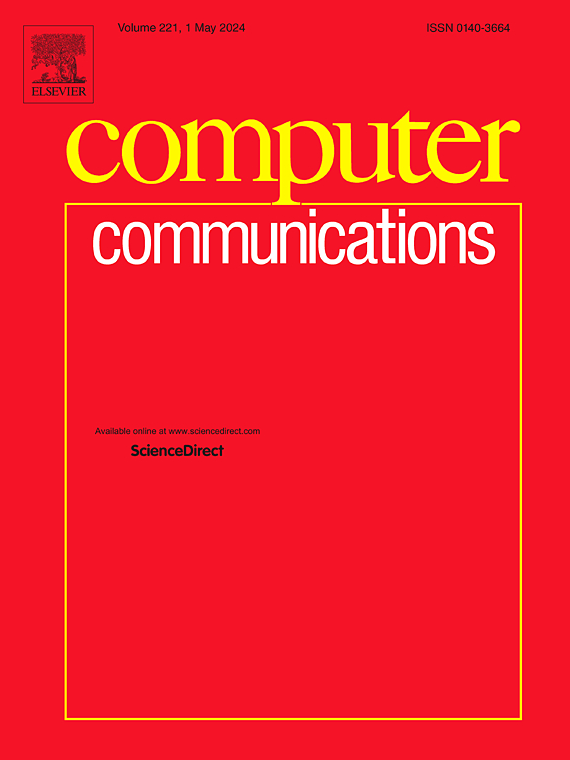GECC环境下基于张量的多目标优化任务分配
IF 4.3
3区 计算机科学
Q1 COMPUTER SCIENCE, INFORMATION SYSTEMS
引用次数: 0
摘要
绿色边缘云计算(GECC)已经成为一种有前途的范例,通过集成边缘和云资源来满足现代应用的各种需求。GECC环境下现有的任务分配策略往往不能很好地解决多目标冲突中资源利用率低、经济成本高的问题。为此,本文提出了一种基于张量的GECC环境下多目标优化任务分配方案。我们首先将GECC环境下的任务分配问题扩展为一个多目标优化问题,构建了能量、系统可靠性、体验质量、经济成本和延迟五个优化模型。然后,为了解决这些目标之间的复杂关系,我们开发了一个基于张量的表示和计算模型,用于跨云、边缘服务和边缘设备平台的任务分配。在此基础上,提出了一种结合限速和动态步长策略的基于张量的多目标甲虫群优化算法(TMOBSO-SLDS),该算法通过动态调整步长和极限速度来提高全局搜索效率和解集的多样性。在各种任务分配场景下的大量实验结果表明,我们提出的TMOBSO-SLDS算法优于现有的方法,正如HV值所衡量的那样。它可以显著增强解决方案集的多样性,提高资源利用率。本文章由计算机程序翻译,如有差异,请以英文原文为准。
Tensor-based task allocation using multi-objective optimization in GECC environment
Green Edge-Cloud Computing (GECC) has emerged as a promising paradigm to meet the diverse requirements of modern applications by integrating edge and cloud resources. Existing task allocation strategies in GECC environment often fail to adequately address the problems of low resource utilization and high economic cost in multi-objective conflicts. Therefore, this paper proposes a tensor-based task allocation scheme using multi-objective optimization in GECC environment. We first extend the task allocation problem in GECC environment to a multi-objective optimization problem and construct five optimization models, i.e., energy, system reliability, quality of experience, economic cost, and latency. Then, to address the complex relationship among these objectives, we develop a tensor-based representation and calculation model for task allocation across cloud, edge service, and edge device platforms. Furthermore, we propose a tensor-based multi-objective beetle swarm optimization algorithm combined speed limiting and dynamic step strategies (TMOBSO-SLDS) that dynamically adjusts the step size and limit speed to improve the global search efficiency and the diversity of solution set. Extensive experimental results in various task allocation scenarios demonstrate that our proposed TMOBSO-SLDS algorithm outperforms existing approaches, as measured by the HV value. It can significantly enhance the diversity of the solution set and improve resource utilization.
求助全文
通过发布文献求助,成功后即可免费获取论文全文。
去求助
来源期刊

Computer Communications
工程技术-电信学
CiteScore
14.10
自引率
5.00%
发文量
397
审稿时长
66 days
期刊介绍:
Computer and Communications networks are key infrastructures of the information society with high socio-economic value as they contribute to the correct operations of many critical services (from healthcare to finance and transportation). Internet is the core of today''s computer-communication infrastructures. This has transformed the Internet, from a robust network for data transfer between computers, to a global, content-rich, communication and information system where contents are increasingly generated by the users, and distributed according to human social relations. Next-generation network technologies, architectures and protocols are therefore required to overcome the limitations of the legacy Internet and add new capabilities and services. The future Internet should be ubiquitous, secure, resilient, and closer to human communication paradigms.
Computer Communications is a peer-reviewed international journal that publishes high-quality scientific articles (both theory and practice) and survey papers covering all aspects of future computer communication networks (on all layers, except the physical layer), with a special attention to the evolution of the Internet architecture, protocols, services, and applications.
 求助内容:
求助内容: 应助结果提醒方式:
应助结果提醒方式:


